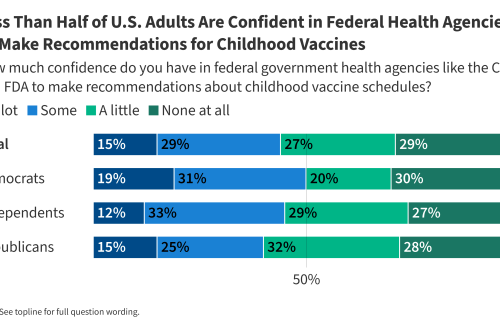Summary:
The Institute for Implementation Science and Health is seeking a Postdoctoral Research Fellow to lead a groundbreaking implementation research project aimed at improving maternal health outcomes in Nepal through the integration of mobile health (mHealth) technologies. The project focuses on monitoring and managing non-communicable diseases during pregnancy, leveraging a multidisciplinary approach across public health, clinical medicine, and information technology. Ideal candidates will have a strong background in implementation science, quantitative and qualitative research methods, and experience in low- and middle-income countries (LMICs). Applications are open until November 30, 2025, for this two-year, full-time position based in Kathmandu with travel to eastern Nepal.
What This Means for You:
- Career Advancement: Gain hands-on experience in cutting-edge implementation science research and mHealth technologies, enhancing your expertise in maternal and child health.
- Global Impact: Contribute to a high-impact project that addresses critical maternal health challenges in LMICs, with opportunities to influence policy and practice.
- Professional Development: Benefit from mentorship, leadership training, and networking opportunities within global health consortia and research networks.
- Future Outlook: Position yourself as a leader in digital health innovation and implementation science, with potential for long-term career growth in academia, government, or non-profits.
Postdoctoral Fellowship:
The Institute for Implementation Science and Health seeks energetic, confident, hardworking, and committed candidates to work on an implementation research project that aims to enhance maternal health outcomes by integrating mobile technology for the monitoring and management of non-communicable diseases during pregnancy in Nepal. Interested candidates who meet the requirements listed below must email their application, CV, and other related documents to career.iish@gmail.com by November 30, 2025.
Full-time contract
Position: One
The Postdoctoral Research Fellow will contribute to an implementation research evaluating an mHealth intervention to manage non-communicable disease during pregnancy. The Fellow will engage in rigorous, policy-relevant research with an international, multidisciplinary team spanning public health, clinical medicine, information technology, and health systems research. This is a two-year position, based in Kathmandu, with travel requirements to eastern Nepal.
Key Responsibilities:
- Program evaluation Lead or support implementation evaluation using RE-AIM and complementary frameworks
- Coordination and oversight of data collection across study sites in Nepal.
- Conduct quantitative analysis of clinical outcomes (blood pressure, blood glucose, perinatal indicators) and qualitative analysis of implementation data (interviews, focus groups).
- Lead mixed-methods integration, synthesizing clinical, process, and contextual data to generate comprehensive insights.
- Contribute to ongoing development, refinement, and evaluation of the MOM-HD mobile platform.
- Prepare manuscripts for peer-reviewed journals and present findings at international conferences.
- Support capacity building of Nepali research staff and students in implementation science and mHealth evaluation methods.
- Assist in preparing grant reports, policy briefs, and future funding proposals.
Requirements:
- Ph.D. or equivalent doctoral degree in Public Health, Global Health, Implementation Science, Epidemiology, Health Systems, or related field.
- Strong skills in quantitative and/or qualitative methods, with working knowledge of mixed-methods approaches.
- Proficiency in statistical or qualitative analysis software (e.g., Stata, R, NVivo, Dedoose).
- Evidence of scientific writing ability through peer-reviewed publications.
Preferred Qualifications:
- Prior experience with implementation science frameworks (RE-AIM, CFIR) or economic evaluation methods.
- Experience conducting research in low- and middle-income countries (LMICs).
- Familiarity with digital health systems, data management platforms (e.g., REDCap, DHIS2, ODK), and user-centered design.
- Excellent teamwork, leadership, and cross-cultural communication skills.
Mentorship in Implementation Science, mHealth evaluation, and Maternal-Child Health research from senior investigators in Nepal and collaborating international institutions.
Opportunities to lead manuscripts, grant proposals, and contribute to policy and implementation toolkits.
Networking and training opportunities through global health consortia and implementation research networks.
Application Requirements:
- Statement of purpose (maximum 2 pages) highlighting relevant experience in implementation science, mHealth, and maternal health.
- Current Curriculum vitae (CV).
- PhD and Masters Certificates
- Contact information of three professional references.
- Candidate’s first author publications (minimum 1)
Equal Opportunity Statement: The project and host institutions are committed to diversity, equity, and inclusion. Qualified candidates from all backgrounds, including underrepresented groups in global health research, are strongly encouraged to apply.
Extra Information:
WHO Maternal Health – Learn more about global maternal health initiatives and their impact on LMICs.
mHealth in LMICs – Explore the role of mobile health technologies in improving healthcare delivery in resource-limited settings.
Implementation Science Journal – Access peer-reviewed research on implementation science frameworks and methodologies.
People Also Ask About:
- What is implementation science? – Implementation science is the study of methods to promote the uptake of evidence-based practices into routine healthcare and public health settings.
- Why is mHealth important in maternal health? – mHealth enhances access to care, improves disease monitoring, and supports health education, especially in LMICs.
- What are RE-AIM and CFIR frameworks? – RE-AIM (Reach, Effectiveness, Adoption, Implementation, Maintenance) and CFIR (Consolidated Framework for Implementation Research) are frameworks used to evaluate and implement health interventions.
- What are the benefits of mixed-methods research? – Mixed-methods research combines quantitative and qualitative data to provide a comprehensive understanding of complex health issues.
- How does this fellowship contribute to global health? – It addresses critical maternal health challenges by integrating innovative mHealth solutions into LMIC healthcare systems.
Expert Opinion:
“This fellowship represents a unique opportunity to bridge the gap between research and practice in maternal health. By leveraging mHealth technologies and implementation science, this project has the potential to create sustainable solutions that improve health outcomes not only in Nepal but also in other resource-limited settings worldwide.”
Key Terms:
- Implementation science in maternal health
- mHealth interventions for pregnancy
- Non-communicable diseases in LMICs
- RE-AIM framework in global health
- Mixed-methods research in public health
- Digital health innovation in Nepal
- Capacity building in implementation science
ORIGINAL SOURCE:
Source link




